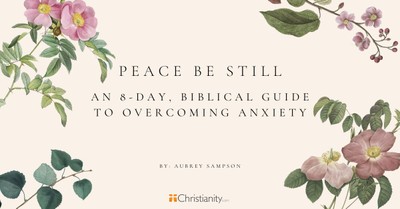What Ben-Hur Can Teach Us about Power and Privilege
-
Ryan Duncan Crosswalk.com blogspot for ChristianMovieReviews.com and Ryan Duncan, Crosswalk.com Entertainment and Culture editor
- Updated Aug 25, 2016
At its heart, Ben-Hur has always been a story about Jesus. When it was first published by Lew Wallace in 1880, its full title was Ben-Hur: A Tale of the Christ. The Jewish prince, Judah Ben-Hur, may have served as the novel’s protagonist, but it was clear Jesus was the one shaping the course of his journey. Out on the margins he offered hope, mercy, and redemption, where others sought only revenge. It’s a timeless story, one which continues to unfold with each retelling.
The latest adaption of Ben-Hur has already released in theaters, and though it doesn’t have the magnitude of its Heston-starring predecessor, it does ask some rather poignant questions. In particular, Brett McCracken of The Gospel Coalition hoped to draw attention to the film’s overarching themes of power and privilege. In his latest post McCracken writes,
“One way Ben-Hur offers relevant commentary on today’s world is in its analysis of power and privilege. Characters betray relationships and communities and convictions out of a desire either to accrue more power or not lose existing power. As a wealthy Jew seeking to maintain his comfortable life in Jerusalem, Ben-Hur struggles when others around him seek to overthrow the Romans. He doesn’t want to jeopardize his privilege by critiquing the Romans’ tactics or undermining their authority, even when he knows it’s wrong. In fact, he only does so after he’s lost everything anyway. His position is contrasted with Jesus, whose cross-bearing suffering is chosen rather than forced on him. Jesus redefines power as voluntary service on behalf of the weak and helpless.”
“Do we celebrate power this way today? Do we have a ‘maintain your privilege and protect your comfort’ view of power? Or do we have a ‘forsake your privilege and humbly wash the feet of others’ view? If nothing else, this American political season should especially lead us to reflect on these questions, as our Christian witness often rises or falls based on how it intersects with power.”
MacCracken is right to bring these questions forward. Despite the recent shifts in culture, American Christians still enjoy a wealth of privilege and wield considerable influence in our society. We rarely consider the needs of the persecuted Church, and we can be reluctant to extend our hand to those outside our sphere of living. However, just as in Ben-Hur, Christ does not adhere to our notions of power. In fact, he expressly warned his followers that clinging to their worldly privilege would only endanger their spiritual journey.
Consider the story of the rich man who came to Jesus in Matthew 19,
“Jesus answered, ‘If you want to be perfect, go, sell your possessions and give to the poor, and you will have treasure in heaven. Then come, follow me.’ When the young man heard this, he went away sad, because he had great wealth. Then Jesus said to his disciples, ‘Truly I tell you, it is hard for someone who is rich to enter the kingdom of heaven. Again I tell you, it is easier for a camel to go through the eye of a needle than for someone who is rich to enter the kingdom of God.’” – Matthew 19:21-24
Ben-Hur may not be this year’s strongest Christian film, but it is certainly worth seeing, if only to reflect on the lessons it brings. Being a Christian means wading into the murky waters of life, speaking for those who have no voice, and standing with strangers who look different from you. It means letting go of our worldly treasures so we can pass through the eye of a needle. As Ben-Hur shows us, power and privilege can be lost, but the gift of grace is worth so much more.
*Published 8/24/2016

















